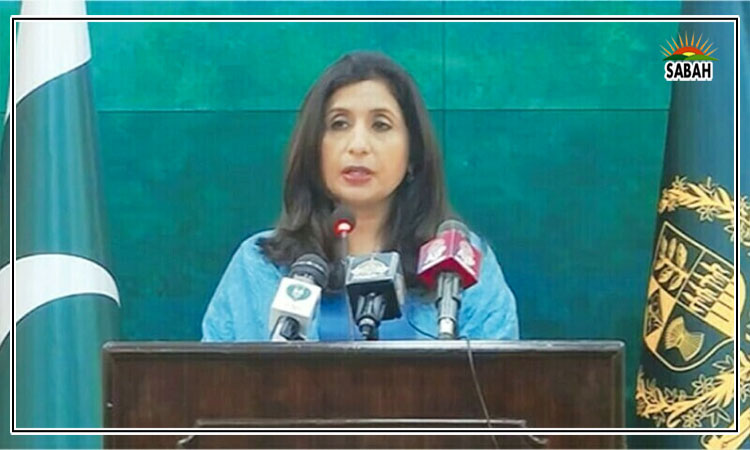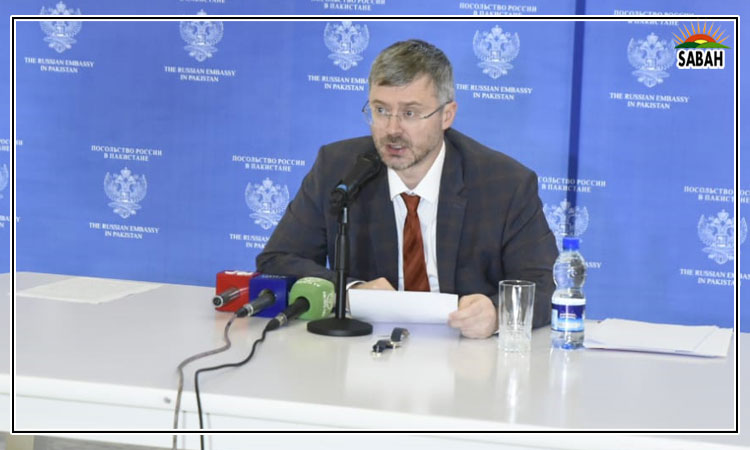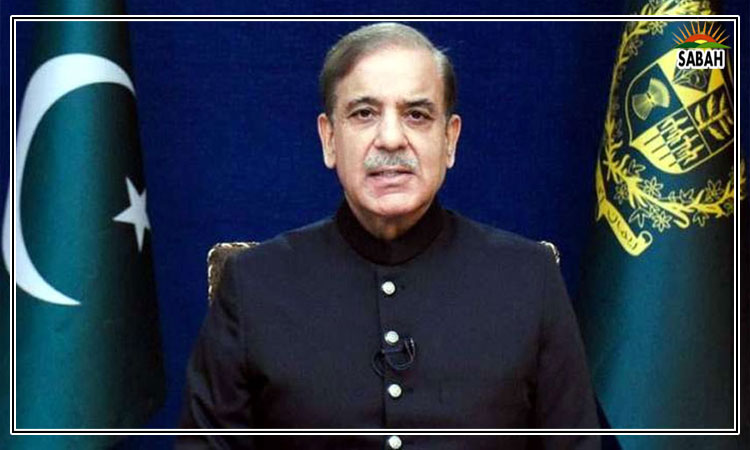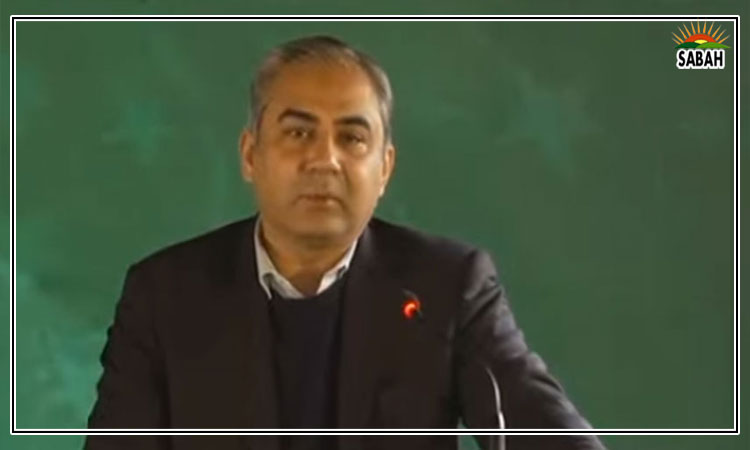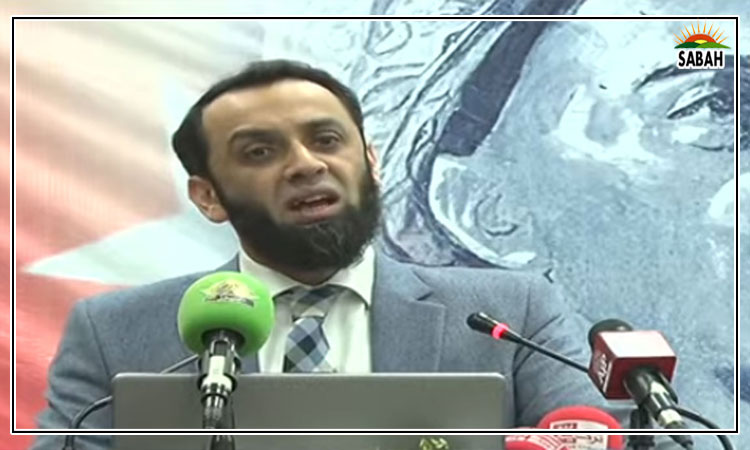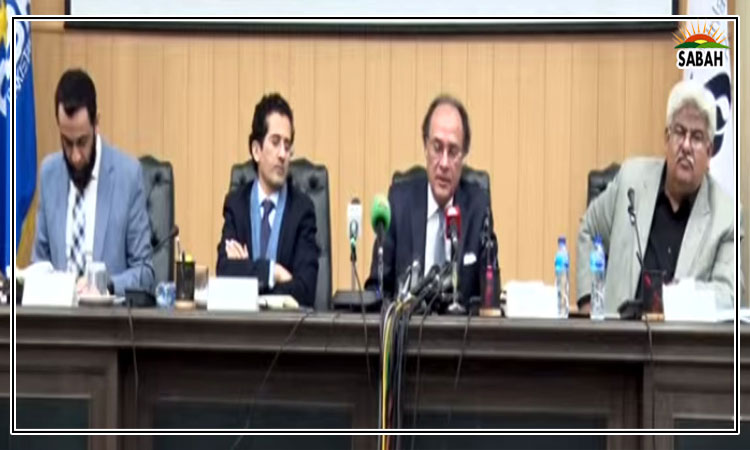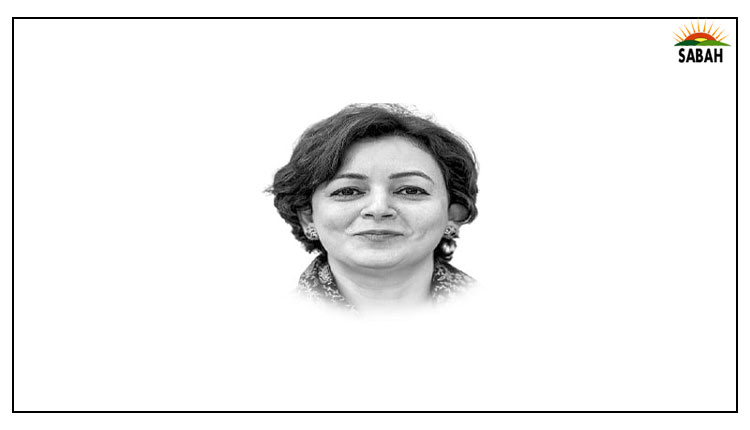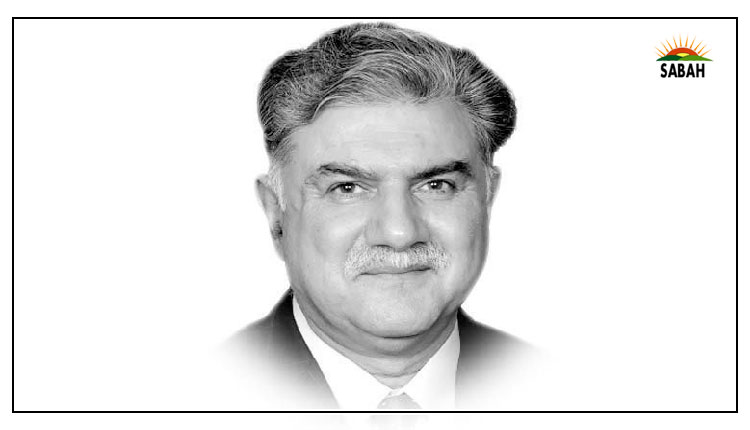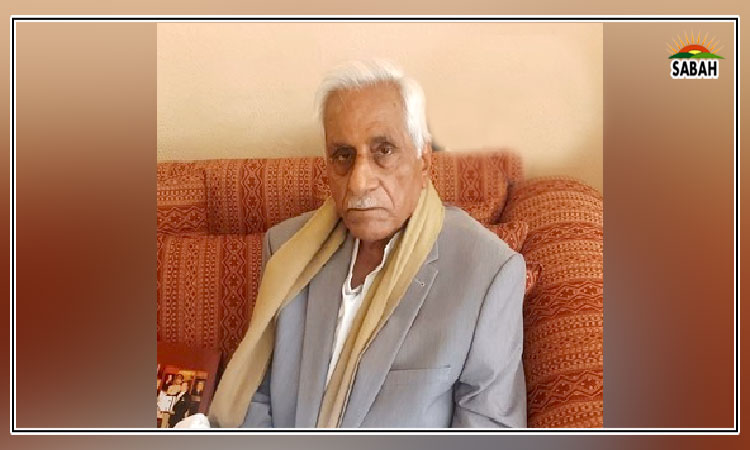Glowing tributes paid to poet, writer late Ahmed Saleem
ISLAMABAD, Dec 19 (SABAH): Caretaker Minister for National Heritage and Culture Division, Syed Jamal Shah on Tuesday eulogized the renowned Punjabi and Urdu literati, researcher Ahmed Saleem and demanded the quarters concerned to ensure preservation of his archives for the future generations as a national asset.

The Federal Minister for National Heritage and Culture was the chief guest at the memorial reference jointly organized by the Sustainable Development Policy Institute (SDPI) and Pakistan Academy of Letters (PAL) to pay tribute to the great intellectual and active member of the Progressive Literary Movement of the country. A special documentary by SDPI on the life of Late Ahmed Saleem was also presented.

Jamal Shah said Ahmed Saleem had a deep linkage with his society and his quest for knowledge turned him into a flower with a powerful smell that had been embellishing the environment. “He was among those people who aware and educated themselves to selflessly serve this soil. Ahmed Saleem was an aware, generous and a good communicator deft enough to engage and persuade the people,” he said.
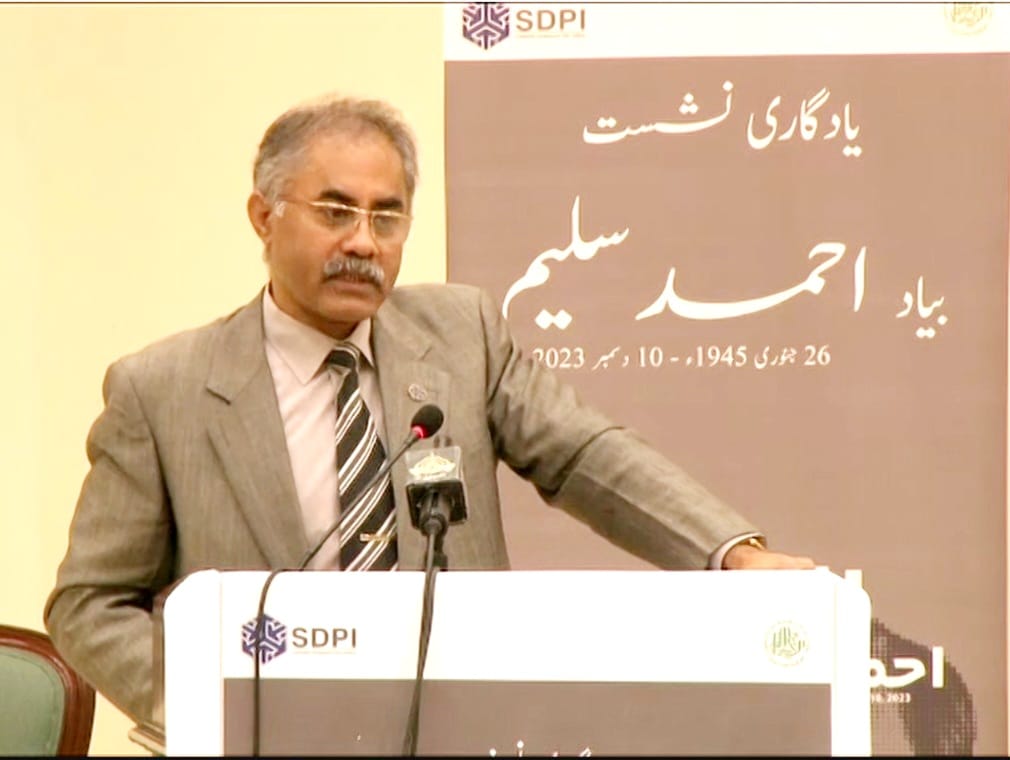
The Minister mentioned that it was always the dream of late Ahmed Saleem to preserve his archives which should be done through a collective effort of all stakeholders and well wishers of the deceased.
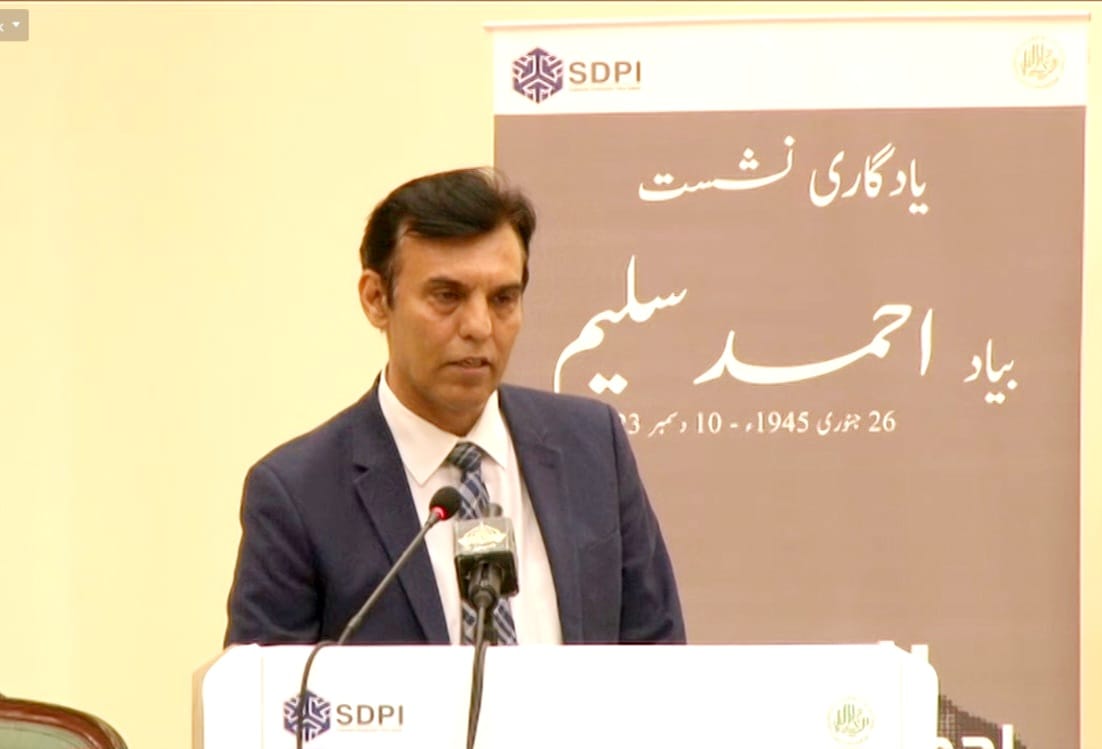
He noted that Ahmed Saleem was a self-effacing person who never recited his poems before him. “We should take up the task to fulfil the dream of Ahmed Saleem and I would direct PAL to provide some space for a temporary set up to conserve the archives till a proper trust is being established for the protection of those books,” he said.
Ahmed Saleem, he said like Baba Bhullay Shah, Rehman Baba and Habib Jalib was a lucid and generous being who did not keep any biases and prejudice in their works.
Executive Director SDPI, Dr. Abid Qaiyum Suleri in his speech read out the poem of Interim Minister for Information Murtaza Solangi as a tribute to Ahmed Saleem. Dr. Suleri mentioned that Ahmed Saleem never had discrimination in his life for anyone, however, his literary stature was evident from the fact that the government of Pakistan at one hand conferred the Pride of Performance for Arts on him and the President of Bangladesh awarded him Presidential Award for supporting Begali language.
He thanked Senator Pervaiz Rashid for playing an important role in securing a special grant from Chief Minister Punjab’s Fund for the liver transplant of Ahmed Saleem at Shifa Hospital. Dr. Suleri shared his memories with the deceased and informed the participants that Ahmed Saleem became the introduction of the SDPI globally and regionally as the institute gained huge respect in Bangladesh, India, or within the country be it Khyber Pakhtunkhwa (KP), Sindh or Balochistan.
Ahmed Saleem, he said used to spend all his salary on buying books as it was all his universe. “When SDPI was at the verge of crisis, over decade back, then Ahmed Saleem and Brig (R) Muhammad Yasin were the only two persons who surrendered their gratuity and arrears to save the institute and did not receive salary till the issue was resolved,” the SDPI Executive Director said.
He said that Ahmed Saleem had already set up a trust for his archives and books, whereas he had also given the names Dr. Humera Ashfaq, Dr. Shafqat Munir and his name for its trustees.
Dr. Suleri noted that Ahmed Saleem once refused to sale his resource center’s books and archives to a foreign embassy against a heavy amount and termed his collections as asset of the nation and this soil.
Nuzhat Abbass, from United Kingdom via videolink expressed her sentiments and paid tribute to the later author and researcher. She shed light on the life of Ahmed Saleem and his efforts for defending the rights of women and oppressed through his writings and artistic works.
Navsharan Singh from Chandigarh India also shared her thoughts via videolink. She said Ahmed Saleem was the poet of humanity, equality, rights, women empowerment and a genuine right defender. She said the late Ahmed Saleem was loved both in Indian and Pakistani Punjab whereas writer, authors and poets were writing special blogs and columns for the deceased in the local and national Punjabi dailies. Singh added that his demise left a deep impact on the minds of all who remained associated to him.
She said he was the voice of the oppressed and his poetry painted the vagaries of the partition of the subcontinent and the 1971 fall of Dhaka.
Dr. Pritam Singh from UK through online participation shared his sincere regards for the deceased. He said after his first interaction with Ahmed Saleem at Oxford, UK; he had found him a loving soul. He mentioned that Ahmed Saleem had a painful narrative on the partition of India in 1947 and had associated his strong feelings to partition. Singh informed that Saleem was associated with Punjab Research Forum working on the East and West Punjab and the Punjabi diaspora, adding, “He was committed to Punjabi language and society without any sentiments of exploitation, inequality and malice.
Rana Fawad, CEO Lahore Qalanders also shared his account of association with Ahmed Saleem during his theater life in Lahore. He mentioned that Ahmed Saleem convinced him to lay the foundation of the first ever street theater for the labourers. He said Ahmed Saleem always spent all his earning on buying books and lived a contented life.
Harris Khalique, Secretary General HRCP said the entire ideology of knowledge prevailing in the society was based on capitalism, where it was needed to develop complete understanding of all subjects of social sciences. “Ahmed Saleem considered the knowledge of all social sciences and humanities in totality that laid the foundation of strong basis of knowledge ideology free from any biases and discrimination,” he said. He said the translations of different literary works by Ahmed Saleem was the task of the departments concerned but the latter did an extensive job. However, the digitization of his archives and works was important, along with linking his South Asia Research and Resource Center to universities and students.
Senator Farhat Ullah Babar of Pakistan Peoples Party commended Dr Suleri for acknowledging Ahmed Saleem’s efforts before and after his death and supporting him in receiving the Pride of Performance. He termed Ahmed Saleem as a national asset as the wealth of his knowledge was not only belonging to his family members but also the entire nation. Former Senator Babar noted that Ahmed Saleem had the largest individual archives in the country and was a generous expert who always shared study and research material without any bias to all for free.
“PPP requested Ahmed Saleem to harmonize its party manifesto in 2008 which he did very well. Ahmed Saleem was one of the renowned leftists and I learnt from him the rise and fall of the left movement,” he said.
Senator Taj Haider, PPP said Ahmed Saleem always advocated the rights of the marginalized and never compromised on his principles through his writings. Ahmed Saleem always compiled all the literature that was progressive in nature and banned by the dictators, he added.
Senator Haider requested the Minister for Culture to provide the archives of Mr Ahmed Saleem to establish a separate institute to preserve those invaluable books.
Dr. Humera Ashfaq, Zareena Salamat, Kulsum Zaib, Barrister Naseem Bajwa, UK, Dr Anwaar Ahmed, Akhtar Usman and Brigadier (Retd) Muhammad Yasin of SDPI also spoke their hearts out for Ahmed Saleem in acknowledging his services to the nation and society.
DG PAL, Sultan Muhammad Nasir extended his vote of thanks to all participants and SDPI for organizing the reference and extended his gratitude to SDPI for supporting PAL in the endeavour. Ahmed Saleem’s life sheds light on his life journey as a global citizen and as a beacon in dark times, he added. He assured that as per the directions of the Minister, SDPI Ahmed Saleem Resource Center and the family members of Ahmed Saleem, the PAL would be proud to take up the task of preserving the deceased’s archives.


